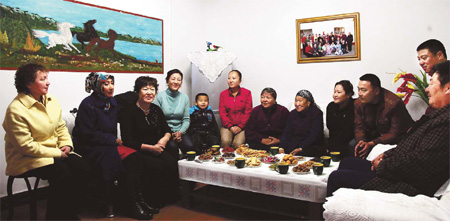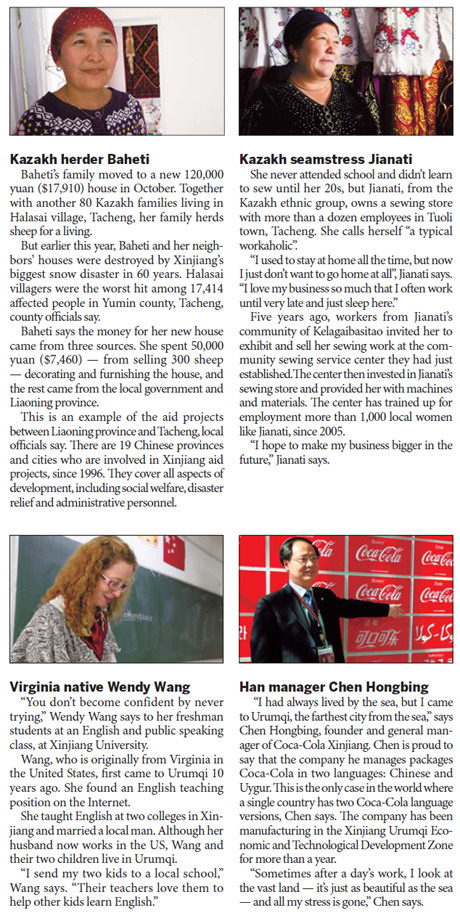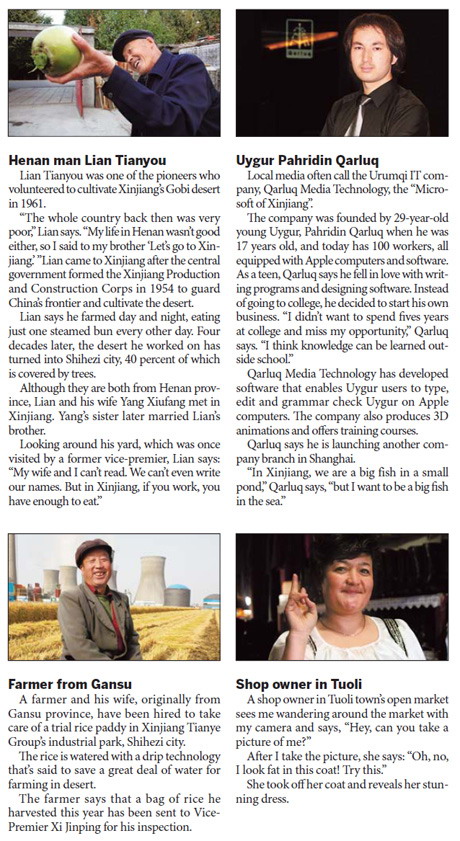Portrait of a people
By Feng Xin (China Daily)
Updated: 2010-11-15 10:00
 |
Large Medium Small |
 |
|
Hui Bai Xiuzhen's multi-ethnic family The family of Bai Xiuzhen (fifth from right) has grown to 45 members and seven ethnic groups. Bai is from Hui ethnic group. She and her husband, who passed away, have 12 children. After their children's inter-ethnic marriages, the family of four generations now comprises Hui, Han, Kazakh, Russian, Uygur, Daur and Tatar people. And the recipe for success? "Maybe tolerance, I guess," Bai says. [Photos/Feng Xin / China Daily] |
Xinjiang Uygur autonomous region is a huge, multicultural melting pot full of interesting faces and stories. Feng Xin reports.
If you love a place, it's the people who are responsible. On a two-week trip to Xinjiang Uygur autonomous region, I spent most of my time chatting with people, in the markets, on the streets or in the fields.
As China's largest administrative region, Xinjiang covers one sixth of the country's territory and nurtures people from more than a dozen ethnic groups. Urumqi, Xinjiang's capital city of more than 2 million people, is intensely multicultural.
I met two entrepreneurs, one Han ethnic group individual who has always lived in South China, the other an Uygur who is expanding his IT empire; and an American teacher married to a local man.
In Shihezi city, an oasis built by Xinjiang Production and Construction Corps, I met a pioneer who volunteered to cultivate Xinjiang's Gobi desert.
In Tacheng, where Kazakhs form one of the main ethnic groups, I was amazed by one lady's sewing career and a couple of shepherd families' new houses, built after the spring snow disaster.

